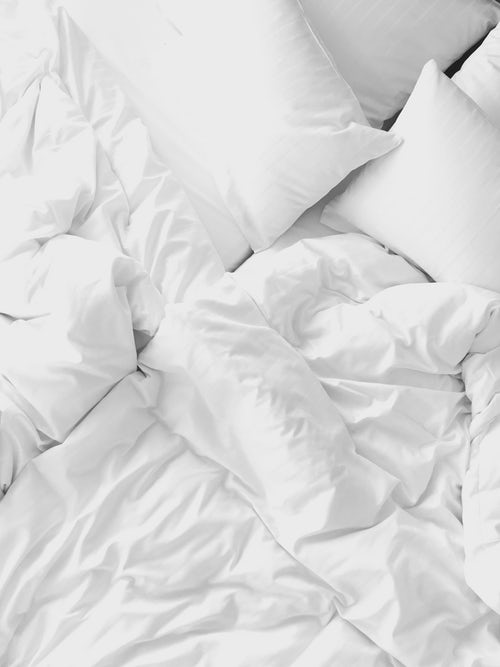Sleep is sort of my thing. My parents tell me that when I was little, I would take four hour naps, and could go to bed at 5pm and sleep until 7am the next morning. It’s just something they’ve always been strict about, and it has become part of who I am. Someone actually gave me a pillow that reads ‘namast’ay in bed’. Because that’s what I do: stay in bed.
My dad calls my bedroom “the cave” — it’s always very dark because of the curtains, and the barrel vaulted ceilings cast long shadows across the floor. My bed is tucked away in a corner, and when I’m there, I can sleep for what seems like forever — or at least until my little brother comes and hits me with pillows.
I was that kid in elementary school who went to bed at 7:30 until fourth grade. It used to bother me a lot, as I thought it was cool to stay up late, and so I never wanted my friends to know how early I went to sleep. But now, instead of being annoyed at my parents like I was back then, I’m grateful for extra sleep. Getting almost 12 hours of sleep a night allowed me to develop a strong memory and stay super healthy. I’ve been fortunate enough to never have missed a day of school since pre-K, and when I do get sick, it never lasts that long. I know there are many factors to being sick, but it’s not just me: one study monitoring the development of the common cold after giving people nasal drops with the cold virus found that those who slept less than seven hours were almost three times more likely to develop a cold than those who slept eight hours or more. Studies show that the quality and quantity of sleep a person gets can impact perception, productivity, performance and mental well-being. Sleep deprivation can lead to weight gain, obesity, difficulty concentrating, and higher rates of depression.
As I get older, school work and activities have started to pile up, and my bedtime is slowly creeping backwards. Somedays, with a late basketball game or a large amount of homework, it’s hard for me to be in bed on time. I know that I don’t function as well with less than eight or nine hours of sleep, so it helps having a firm (if arbitrary) end point to my day when my parents force me to shut my laptop down, because as much as I fight it, I know that a good night’s sleep is what helps me perform my best. I have high expectations for myself, and whatever I’m doing, I want to give it my all–whether that is academics or sports or activities. And I just know I can’t be as creative, focused or fun if I’m tired. And yes, there are times when there’s a project or essay due the next day and I have to stay up late working on it, in which case I have to cope with the consequences.
Before tests, all my friends talk about how they stayed up “all night” cramming. Well, good for you, now you’re tired! Going to bed at 10pm the night before the test may not feel good, as you could continue to study for a couple more hours, but the less time you take away from your sleeping time, the better you’ll be able to perform, because you, your brain, and your body will be rested.
There are also tradeoffs involved with getting enough rest. At sleepovers, I’m always the person who goes to bed before everyone else, or who says “Guys, it’s late, can we go to bed now?” when everyone else is still Snapchatting or playing Mafia. Tennis is a big sport in my family, and since fourth grade, I’ve been playing in a competitive program after school. But this year, with more work and more after-school commitments and school sports teams, I found that I couldn’t fit everything in my schedule and still get the sleep I needed. So I made the decision to give it up because I knew that, as much fun as it was, it wasn’t worth being tired all the time and not being able to perform as well. Like most things in life, making room for adequate sleep sometimes involves hard choices . . . but I don’t let worrying about it keep me up at night!


